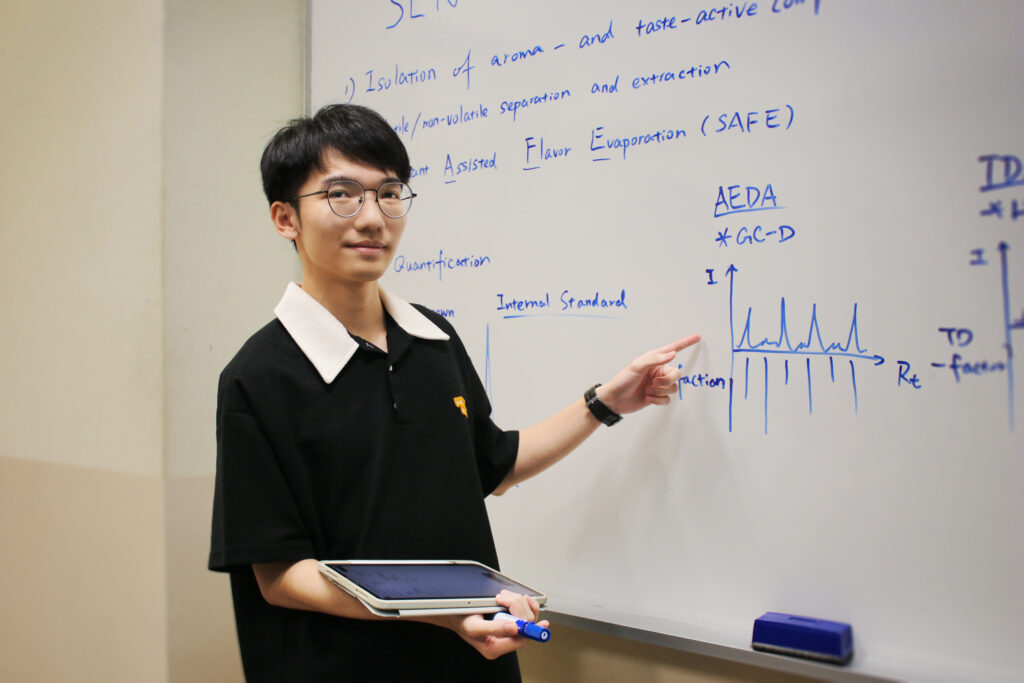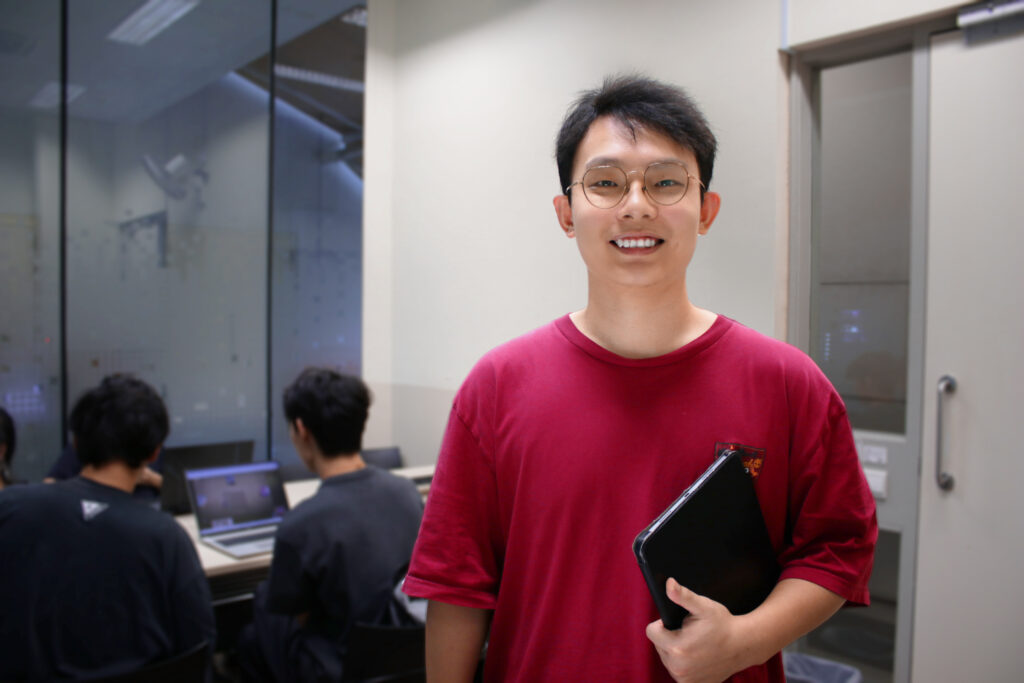
In the heart of Singapore, a pioneering academic journey is taking shape. The Master of Science in Sustainable Food (SF) at TUM Asia – the newest addition to the institute’s graduate offerings – has welcomed its very first cohort, now progressing confidently into their second semester. But what’s it really like to be part of this fresh, forward-thinking programme? To find out, we caught up with two trailblazing students, Zhao Zihui and Fan Haowen, who shared their experience of diving into the world of sustainable food systems – from the classroom to real-world labs, and beyond.
From Biotech to the Future of Food
Both Zihui and Haowen share a background in Biotechnology and Food Engineering, having completed their undergraduate studies at the Guangdong Technion-Israel Institute of Technology. For them, joining the MSc in Sustainable Food felt like a natural next step – but also an exciting leap into uncharted territory.
“A senior introduced me to the programme,” recalls Zihui, “and when I looked into the curriculum, it really felt like a continuation of what I had been learning. I was a little hesitant at first – it was a brand new programme, after all – but knowing it was backed by TUM’s strong academic legacy and presence in Singapore gave me confidence.”
Haowen first heard about the programme from a classmate. “I had actually considered going to Europe, but after visiting Singapore briefly, I fell in love with the vibrant lifestyle and sunny weather. And when I read about the programme, it felt innovative, promising, and well-aligned with my interests.”
A Curriculum That Challenges and Inspires
The MSc in Sustainable Food spans two years, with the first year focused on coursework and the second dedicated to internships and a thesis. Courses are delivered in two-week intensive blocks, with four-hour daily classes – a format that’s both immersive and rigorous.
“It’s definitely different from what we were used to in undergrad,” says Zihui. “You need to be focused, revise consistently, and absorb knowledge quickly – there’s no time to fall behind.”
One of his favourite modules so far? Molecular Sensory Science by Prof. Corinna Dawid.
“She made complex ideas really accessible, using real-life examples and detailed notes. Plus, the lab work gave us a first-hand look at what food taste engineers actually do – it was fascinating.”
For Haowen, the early modules were eye-opening. “The content was so rich and advanced. Prof. Dirk Haller, for instance, was unforgettable – he has this rare mix of academic depth and humour. His classes opened the door to new research areas I hadn’t encountered before.”
Learning From the Experts
Both students speak highly of the faculty, many of whom are professors from TUM’s main campus in Germany. Classes are currently held at the Singapore Polytechnic campus (set to move to NTU from May 2025), with lab sessions and research work conducted at TUMCREATE, TUM’s research platform in Asia, based at NUS.
“The professors are true experts – some are super animated, others more measured – but they’re all passionate, approachable, and eager to engage with students,” shares Zihui.
Haowen agrees: “They’re incredibly down-to-earth despite their credentials. And with our small class size, the learning environment is interactive and personal – which really suits my learning style.”
Beyond the Classroom: Internships and Aspirations
Internship opportunities form a core part of the programme’s second year, offering students hands-on experience in both academic and industry settings – in Singapore and Germany.
Zihui was especially inspired by his time at TUMCREATE, where he got a glimpse into research on plant-based proteins. “It made me seriously consider pursuing a research career. The projects here don’t just stay in labs – they have global potential and real-world impact.”
For Haowen, the programme helped him rediscover his passion for food science. “There are so many pathways – local companies, research labs, and even internships in Munich. I’m aiming for TUM’s main campus. This field is more than a career for me now – it’s a calling.”

Life in Singapore: Food, Friends, and Adventure
Study life isn’t all work and no play – and this cohort has made the most of their time in Singapore.
“We have a ‘hidden chef’ among us!” laughs Zihui. “After class, we hang out for movie nights and enjoy his amazing home-cooked dishes – from bak kut teh to pig ear salad. It’s a great way to bond.”
That “hidden chef”? It’s Haowen himself. “We’re a close-knit group. We cook, study, and explore together. I’ve also made friends from all over the world – we’ve travelled to Malaysia, Indonesia, and more. This has been the most fulfilling time of my life.”
Words to the Next Wave of Food Innovators
As pioneers of the programme, Zihui and Haowen have a few words for those considering joining this unique academic adventure.
Zihui: “Food is about more than what’s on our plates. It affects health, sustainability, and the planet. If you’re passionate about creating real change, this is the place to start.”
Haowen: “The programme is intense, but it’s packed with potential. Bring your curiosity and your drive – and get ready to grow in ways you didn’t expect.”
Ready to make your mark in sustainable food systems?
Explore the MSc in Sustainable Food at TUM Asia – and be part of a future that feeds the world, responsibly.